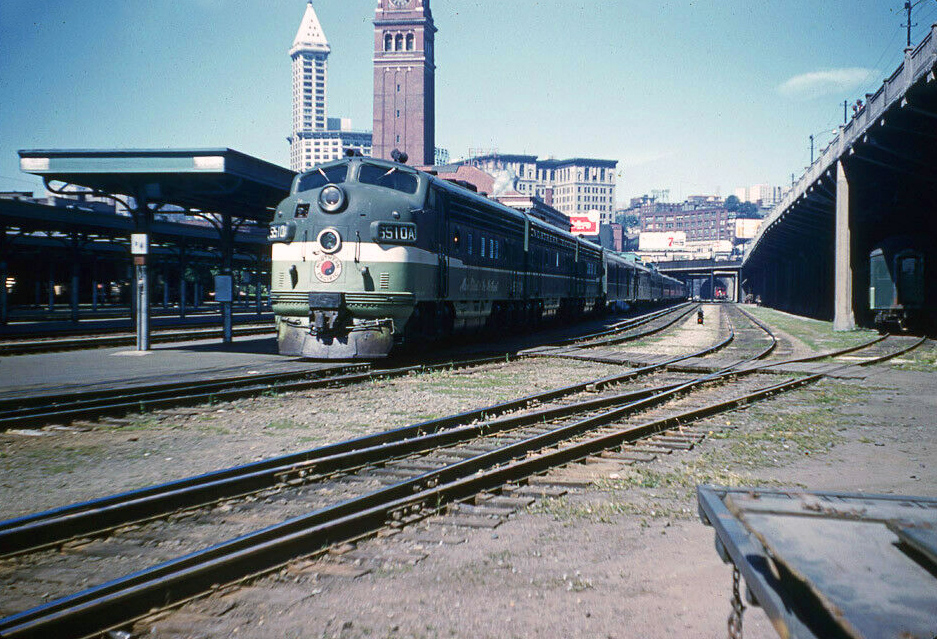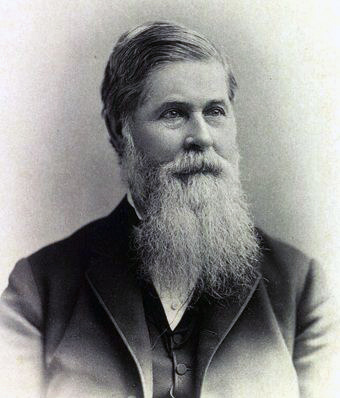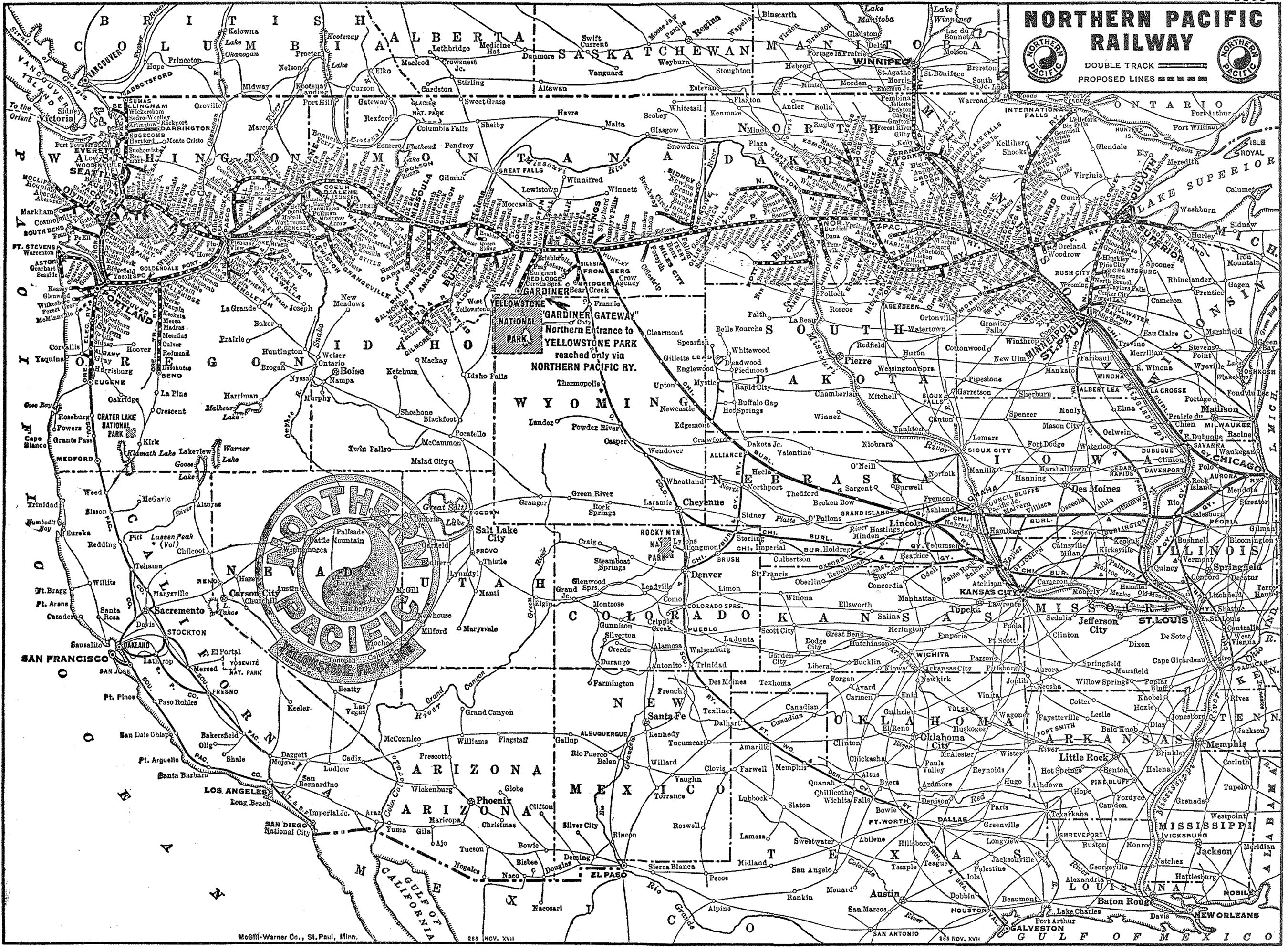Jay Cooke & Company: Financier, Civil War, Net Worth
Last revised: March 18, 2024
By: Adam Burns
Jay Cooke was a prominent American financier and investment banker during the mid-19th century. He is best known for his role in financing the Union's effort in the American Civil War through the sale of government bonds.
After the war, Cooke's firm, Jay Cooke & Company, helped finance the construction of several major railroads, including the Northern Pacific Railway. However, the firm went bankrupt in the Panic of 1873, triggering a severe international economic depression.
It was not until later in life was Cooke heavily involved in financing and building the Northern Pacific Railway, the first transcontinental line to the Pacific Northwest. Jay Cooke was not necessarily a railroader by nature.
He entered from the Wall Street arena, recognizing the government's attempt to complete a second transcontinental railroad could reap serious money via land grants. On paper, the NP was born in 1864 although it was not until Cooke became involved in the late 1870's did the project actually enjoy serious backing.
Cooke had made his millions in the Civil War by selling war bonds and believe in the NP project as a business endeavor that held great importance for the nation.
Alas, he became overextended in financing the project and was forced into bankruptcy in 1873 following that year's financial panic. Cooke was able to stave off destitution when he invested a small amount of money into a silver mine in Utah that ultimately prospered. This allowed Cooke to retire a small millionaire.
Early Life
Jay Cooke, born on August 10, 1821 in Sandusky, Ohio, was an influential financier and railroad magnate during the 19th century. The son of Eleutheros Cooke and Martha Carswell Cooke, Jay was raised in a tight-knit family of conscientious and hardworking individuals.
His father was a lawyer, railroad investor, and real estate speculator, paving the way for his future endeavors. He attended formal schooling until the age of 14 where he carried a number of jobs until 1839 when he was hired on by E.W. Clark & Company, which operated as a bank and broker providing loans to railroads.
At A Glance
Eleutheros Cooke (father) Martha Carswell (mother) |
|
Cooke quickly proved his worth working for the company and after just four years was offered the position of partner.
After the company went bankrupt following the financial panic of 1857 Cooke set out on his own and started Jay Cooke & Company in 1861, which was also a banking and financing operation.
Cooke's company was a highly successful financier during the Civil War helping to secure loans from banks in the north for the federal government's war effort.
In terms of his personal life, Cooke married Dorothea Elizabeth Allen in 1844. The couple had five children together. Cooke cherished his family life, Yet, his dedication to his professional pursuits often led him away from home, necessitating a careful balance between family and business.
 Northern Pacific's train #26, the eastbound "North Coast Limited," awaits departure from Seattle's King Street Station at around 1:30 PM, circa 1955.
Northern Pacific's train #26, the eastbound "North Coast Limited," awaits departure from Seattle's King Street Station at around 1:30 PM, circa 1955.Business Interests
Thanks to his sound fiscal practices the bonds issued were highly regarded and while the United States held a heavy amount of debt at war's end its currency was stable. By the end of the war Cooke had been able to negotiate upwards of $1 billion for the Union and became known as the "financier of the Civil War."
It wasn't until 1870 at the age of 49 did Cooke take a serious interest in railroads. He held a high regard for the city of Duluth, Minnesota and wanted to see it prosper by having a major railroad.
Beyond the Northern Pacific Railway, Cooke financed the construction of other railroads. His keen understanding of finance and his visionary outlook on infrastructure development positioned him favorably for these undertakings.
Cooke also saw untapped potential in the Pacific Northwest finally being directly served by rail. His firm, Jay Cooke & Company, was instrumental in providing the necessary funding for the Northern Pacific Railway. With an initial purpose of selling government bonds, the company evolved to helm the financing of significant infrastructure projects across the country.
Northern Pacific Railway
The Northern Pacific has its roots dating to the summer of 1864 when President Lincoln signed the railroad's creation by an Act of Congress and the Northern Pacific Railroad Company was born.
Construction on the new company began seven years later in 1870 and would roughly follow the expedition of Lewis and Clark who originally chartered the western territory in the early 19th century.
While crews began building from opposite directions at Lake Superior in the east and Puget Sound in the west it would become some of the toughest railroad to ever construct.
Not only were crews building through some of the roughest terrain in the country but also a region that was literally still frontier lands and settlements were few and far between.
Supplies usually had to be shipped in from hundreds of miles away and the weather could often be down right brutal. Through it all, however, crews prevailed and by the early 1880s had made tremendous strides.
By the late summer of 1883 the main line from Minnesota to Portland, over 1,800 miles in length, had been completed and a lavish ceremony marked the occasion.
While completed, the line did have future gaps to close in the way of many tunnels, along with a branch which needed to extend west from Ellensburg, Washington following as closely as possible to the Yakima River. For Cooke's part, however, his tenure with the Northern Pacific ended just a few years after its construction had begun.
1873 Financial Panic
Cooke had been hired by NP's directors to promote the railroad and its extension westward in hopes of raising the millions needed for its construction. He spent a exorbitant amount of time, money, and energy vouching for the railroad.
However, he had a very difficult effort in selling the needed bonds and eventually his company became overextended in its efforts and the resulting Panic of 1873 forced Cooke into his bankruptcy. While he lost millions as a result of his efforts he did recover in the late 1800s upon investing in an upstart silver mine that ultimately prospered allowing him to retire, again wealthy.
Legacy
Cooke's efforts for the town of Duluth were not forgotten by the city or state, as the Jay Cooke State Park located near the city is named in his honor. He also gave generously to his local Episcopal church and setup the Ogontz School for girls in his former estate located in Elkins Park, Pennsylvania.
At the height of his career, Jay Cooke was one of the wealthiest men in America, with an estimated net worth of millions.
One cannot discredit the lasting legacy of Jay Cooke. His bold financial maneuvers not only played a significant role in securing Union victory during the Civil War, but they also ushered in a new era of railway transportation throughout the United States.
Cooke's early life, marked by diligence and ambition, sowed the seeds for his later success. Though faced with several financial setbacks throughout his career, Cooke’s resilience and forward-thinking mindset can be seen in his continuous pursuit of new business endeavors.
Jay Cooke's legacy endures, encapsulated in the Northern Pacific Railway and the broader American railway system. His visionary investments expedited connectivity and growth across the vast American continent, contributing substantially to the economic development of the nation.
From his beginnings in Ohio and his ventures in Philadelphia's financial sector, Cooke’s journey is a testament to the transformative power of financial savvy, robust business strategies, and indomitable determination.
Cooke's faith in the Union cause during the Civil war lent him the courage to embark on ambitious government bond sales. His fruitful efforts provided the critical financial support that the Union Army desperately required in a time of national crisis.
Cooke's financing of the Northern Pacific Railway signifies his willingness to invest in ambitious and risky projects for the sake of national growth. Despite the eventual financial difficulties, this venture established an essential transportation network that continues to serve the country today.
The bankruptcy of Jay Cooke & Company underlines the inherent risks involved in large-scale financial ventures. This event, pivotal in Cooke's career, serves as a reminder of the dualism of risk and reward in business pursuits and the need for cautious financial management.
Lastly, through his journey from a modest upbringing to becoming one of the wealthiest personalities of his era, Jay Cooke’s life offers a remarkable narrative of resilience, strategic ingenuity, and visionary leadership. Notwithstanding the myriad of challenges he faced, Cooke’s enduring legacy continues to inspire and shape the American economic landscape.
Contents
SteamLocomotive.com
Wes Barris's SteamLocomotive.com is simply the best web resource on the study of steam locomotives.
It is difficult to truly articulate just how much material can be found at this website.
It is quite staggering and a must visit!


